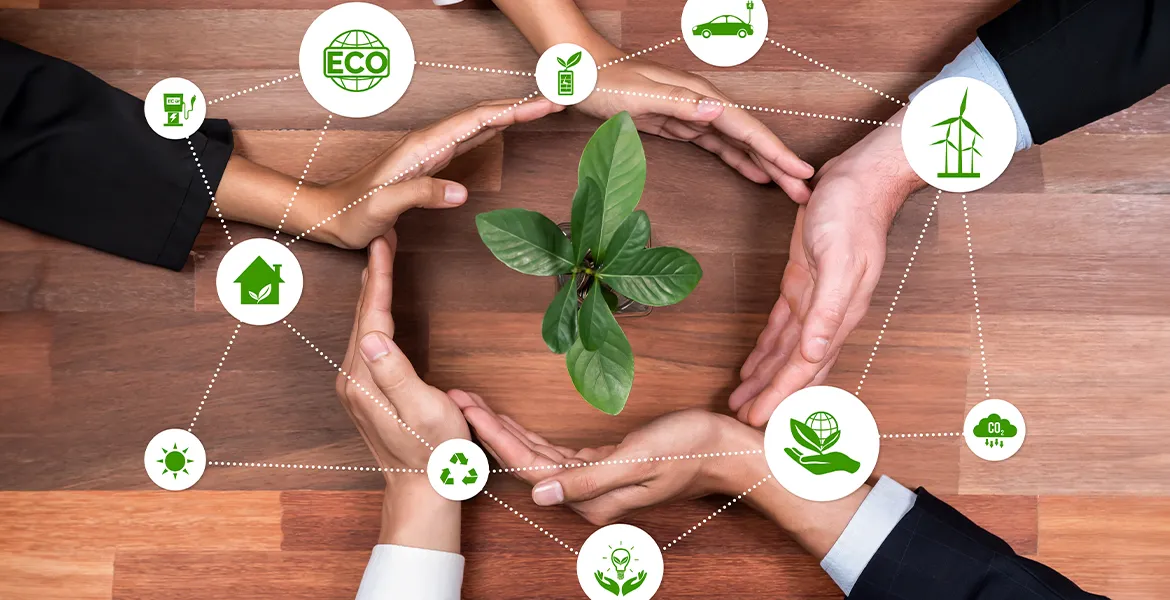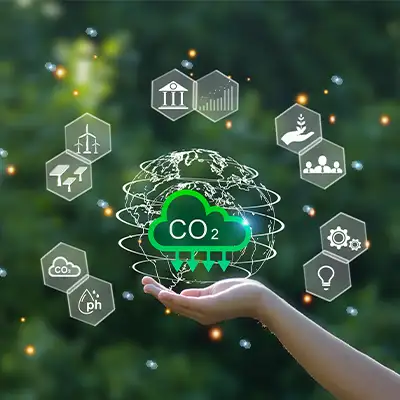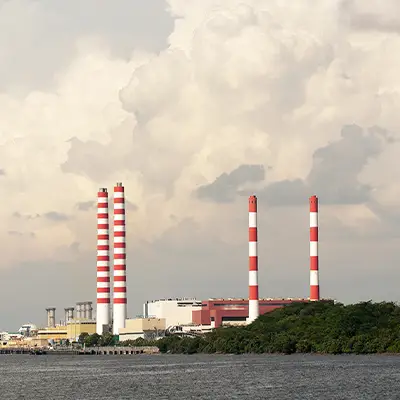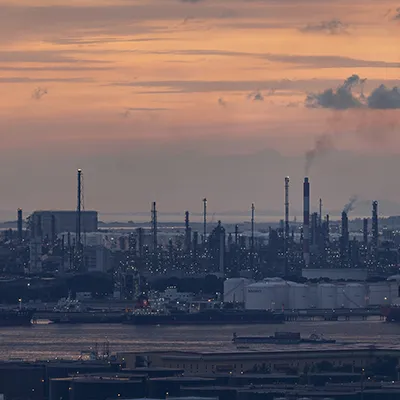Singapore continues to push towards our net-zero goals with a bold new initiative to develop regional carbon markets. Several cross-border collaborations and research projects on low-carbon hydrogen and carbon capture are also underway. Here’s a recap of significant sustainability developments for businesses in Q3 2024.
1. EDB, IETA launch invitation-only Singapore Carbon Market Alliance, connecting carbon credit buyers and sellers
High-quality carbon credits can support investments in emerging climate technologies and nature-based solutions, and complement the decarbonisation strategies of companies to achieve their climate goals. With more businesses interested in using carbon credits to meet their global sustainability goals, the International Emissions Trading Association (IETA) and the Singapore Economic Development Board (EDB) have launched the Singapore Carbon Market Alliance (SCMA).
It's the first platform in Singapore that will connect developers and suppliers of high-quality, Article 6-aligned carbon credits with Singapore-based corporate purchasers. SCMA’s more than 50 member companies include Evonik, Google APAC, The Nature Conservancy, Sembcorp, Changi Airport Group and GenZero. The alliance will hold workshops and networking sessions for members, as well as exchanges with the Singapore government on national requirements and initiatives.
2. Singapore doubles renewable electricity imports through regional power project and raises 2035 target to 6GW
Singapore is set to double its capacity to import electricity from Laos and Malaysia. It currently imports 100MW through the Laos-Thailand-Malaysia-Singapore power integration project. This will rise to 200MW of renewable hydropower. The Energy Market Authority (EMA) granted Keppel a two-year extension of its electricity import licence until 2026 to support the project’s next phase.
Singapore has increased its electricity import target from 4GW to 6GW by 2035, with significant imports from Indonesia, Cambodia and Vietnam. EMA granted five conditional licences for five projects in Indonesia to firms including Pacific Medco Solar Energy and Keppel Energy. The five projects will send 2 GW of greener energy to Singapore. It also awarded two more companies conditional approvals to import 1.4GW of electricity – Singa Renewables, a joint venture between TotalEnergies and RGE, and a venture between Shell Eastern Trading and Vena Energy.
3. Singapore firms source for carbon credits in Ghana
Singapore firms are looking to Ghana for carbon credits that can help them meet their carbon tax commitments. In July, the Ministry of Trade and Industry led a delegation of 22 Singapore-based companies, ranging from project developers to traders and financiers, to Ghana to meet more than 30 Ghanaian project developers with existing carbon credit proposals in Ghana. Proposals include cleaner-burning cookstoves, electric vehicles and reforestation projects. Ghana and Papua New Guinea are currently the only countries where Singaporean companies can source carbon credits.
4. Singapore inks deals with the Philippines, Japan
Singapore and the Philippines have signed a carbon credit pact, where both countries will work towards a legally binding implementation agreement for cross-border carbon credit transfers. This is the Philippines’ first such agreement with any country and is aligned with Article 6 of the Paris Agreement. Keppel and GenZero are already partnering with the Philippines’ Ayala Corporation to retire coal plants in South Luzon early for transition credits.
Separately, Singapore and Japan have agreed to collaborate on carbon capture and storage (CCS) technology. Both countries have similar interests in using CCS to reduce emissions and have plans to export carbon dioxide to ASEAN states as they lack domestic storage capacity.
5. Singapore furthers hydrogen studies to meet its future energy needs
As part of Singapore’s National Hydrogen Strategy, which aims for hydrogen to make up 50 per cent of the electricity mix by 2050, Singapore has introduced a new S$90 million (US$70 million) fund supporting research into hydrogen and sustainable chemical solutions. The Create Thematic Programme in Decarbonisation will advance hydrogen utilisation, green chemistry, synthetic biology and chemical transformation. It will also support nine research projects involving top research institutions such as NUS, NTU, University of Cambridge and Shanghai Jiao Tong University.
Separately, the Energy Market Authority (EMA) has called for a consultancy study to develop a framework of laws, policies and regulations to pave the way for the potential adoption of hydrogen. These could cover areas such as hydrogen imports, ownership and operation of infrastructure, and incentive and financing schemes. The government has already invested S$43 million (US$33 million) in six projects on developing and scaling hydrogen technologies.
6. Singapore to explore development of offshore renewable energy on Pulau Satumu
The Maritime and Port Authority (MPA) plans to study producing offshore renewable energy at Pulau Satumu, Singapore’s southernmost island, with work expected to begin in the fourth quarter of this year. The study will explore the feasibility of installing floating solar panels and underwater tidal turbines to generate clean energy on the island that houses the historic Raffles Lighthouse.
The 30-hectare site, which has strong tides and sunlight, will serve as a testbed for these technologies. Insights from previous pilot projects, alongside environmental assessments, will guide the conceptual design and potential large-scale deployment, balancing renewable energy production with maritime operations and protecting the rich marine biodiversity surrounding the island.
7. Singapore banks lead advanced Asia in sustainable financing policies: Report
According to a report by Asia Research and Engagement, a sustainability-focused consulting company, Singapore banks were found to have the most comprehensive and ambitious decarbonisation policies. DBS, OCBC and UOB have set targets to reduce financed emissions for key carbon-intensive sectors and have included facilitated emissions in their net-zero-by-2050 commitments. These targets align with global benchmarks of limiting global warming to 1.5 degrees Celsius. The report assessed nine banks across Japan, South Korea and Singapore on their climate goals, including their policies, governance and risk management actions.
8. Southeast Asia able to supply 12 per cent of the world’s sustainable aviation fuel needs by 2050
A report supported by Boeing said that Southeast Asia could potentially supply 12 per cent of the world’s sustainable aviation fuel (SAF) needs by 2050. It assessed the supply of 11 feedstocks across all 10 ASEAN member states and estimated that these could lead to the production of 40.9 million tonnes of SAF in 2025. However, several other factors could also influence the actual availability of feedstock, such as financing requirements, infrastructure investments, collection systems and competing industrial interests. A supportive regulatory environment amidst regional collaboration is also required.
9. Research group deems Singapore’s climate targets ‘highly insufficient’, but does not take into account our local constraints: Environment Minister Grace Fu
Global climate research consortium Climate Action Tracker has rated Singapore's climate targets as "highly insufficient", despite recent clean energy policy developments. While noting an improvement from its previous rating of “critically insufficient”, it said that more needed to be done to limit global warming to 1.5 degrees Celsius. In response, Minister for Sustainability and the Environment Grace Fu wrote that their rating methodology does not take into account Singapore’s lack of access to decarbonisation options such as large-scale renewable energy deployments. While Singapore committed to its national climate targets, they are contingent on advancements in low-carbon technologies such as hydrogen and CCS, and cross-border collaborations, she noted.
Matthew Dearth, Associate Professor of Finance (Practice) at Nanyang Technological University, Nanyang Business School and Co-Director of the Centre for Sustainable Finance Innovation, pointed out that Singapore had made strides by implementing a carbon tax in 2019, with plans to increase it to S$50 to S$80 per tonne by 2030, which experts still consider way below the recommended price range. However, balancing emission cuts with economic stability would be crucial for Singapore as it strives for better climate ratings in the future.
10. Download our latest original guide:
Supporting Southeast Asia’s path to net zero: Opportunities for carbon services firms in the region
This report gives an overview of Southeast Asia’s sustainability progress so far. It outlines the challenges companies face in regional sustainability efforts and key areas of demand for carbon services in the region. It also highlights the policies in Singapore that support companies’ decarbonisation journeys.
Learn about how Singapore is partnering businesses to accelerate their low-carbon transition and seize new opportunities in the green economy.
Follow us on LinkedIn to get more updates or subscribe to our newsletter.







